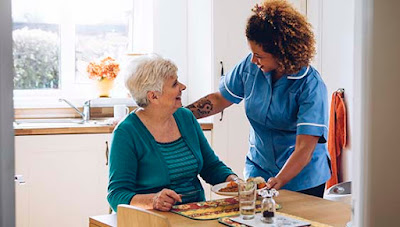People who have been injured in a medical malpractice case are often unaware that they were the victim of a medical malpractice case. Sometimes, the injury appears so minor that no one would question whether or not it was related to a medical malpractice case. Other times, the damage may be so traumatic that no one understands why they are having such difficulty coping and healing from it. You may be suffering from a medical malpractice incident if you recognize any of these scenarios.
The Prescribed Treatment Isn’t Helping You
To determine whether or not negligence was involved in your case, you will need to know exactly what treatment was prescribed. You should also note any medication prescribed for you, along with the dosage of the medication.
You Suspect Surgical Errors
When it comes to surgical errors, the problem is not always only with the surgery's staff. A different doctor or surgeon may have botched the procedure itself. If this was the case, you would need to consult with as many other surgeons and doctors as possible to gather all the necessary information to determine whether or not negligence was involved in your case.
The Doctor Doesn’t Follow Up With Your Concerns
When a patient is concerned about the care they receive from their doctor or doctor's office, they should address this concern immediately. You must express your concerns to your doctor as soon as possible if you feel like the care provided to you by them may have been substandard.
They Made Anesthesia Mistakes
When an anesthesia mistake occurs during surgery, the patient will often experience memory loss or impaired cognitive ability. This can be attributed to the fact that anesthesia causes the brain to be in a state of sleep. Memory and cognitive abilities are vital to patients after surgery, as they can view what is happening and react accordingly. Thus, if anesthesia mistakes cause any damage, it can greatly affect your quality of life and ability to function normally.
There Was A Lack Of Informed Consent
In most cases, the doctor is required to give you informed consent before he or she performs medical procedures on your body. The doctor should be meticulous in their records and ensure they have included their reasoning for performing any particular procedure. Suppose the doctor is not thorough in keeping an accurate record of your medical treatments. In that case, this could point to negligence on the part of the physician and may indicate that you are justified in filing a medical malpractice claim.
The Facility Is Understaffed
In many medical malpractice cases, doctors are forced to overwork themselves to keep up with the demand of their patients. Understaffing may be why you were not treated as well as you should have been while seeking treatment with your doctor. Unfortunately, many time-crunched doctors will cut corners to get through their day; when they do this, it is often at the expense of their patients.
You Have New Symptoms
If you have developed new or strange symptoms after the treatment that you received from your doctor, then you will want to contact a medical malpractice lawyer as soon as possible. This is because many patients in medical malpractice cases only develop symptoms later on, making it difficult to determine whether or not negligence occurred during their treatment. If your doctor's negligence causes your new symptoms, then you should never hesitate to speak with a medical malpractice lawyer.
You should consult a medical malpractice lawyer if you are experiencing any of these symptoms. A medical malpractice lawyer from the Rosenberg, Minc, Falkoff & Wolff, LLP team will be able to advise you on how to proceed with a medical malpractice case as well as how much compensation is likely to be required to cover your damages. They can identify the issues in your case and help determine whether or not negligence was involved in your case. In many cases, the physician did not follow established standards when dealing with your case.
In conclusion, there are many factors that you need to consider when it comes to medical malpractice cases. If a physician or a hospital has injured you, then you may be able to seek compensation for your damages. Understanding exactly why you are having difficulty coping with your injuries will help make it easier for your medical malpractice lawyer to prove that negligence was involved in your case.
This is a guest blog entry.


